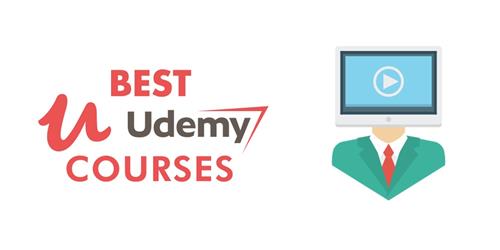
Free Download Applied Computer Vision Object Detection and Recognition
Published 10/2024
Created by Vahid Mirjalili, PhD,Taban Eslami
MP4 | Video: h264, 1280×720 | Audio: AAC, 44.1 KHz, 2 Ch
Genre: eLearning | Language: English | Duration: 44 Lectures ( 2h 14m ) | Size: 853 MB
Object Recognition From Basics to Advanced Techniques
What you’ll learnUnderstand the fundamentals of image recognition, including image classification, object detection, and image segmentation (semantic, instance, and panoptic))
Master the underlying theories and principles of key computer vision models, enabling a deep understanding of their functionality and applications
Master PyTorch fundamentals, learn how to build a CNN model, and your custom image dataset
Implement advanced image recognition models and train them in PyTorch
RequirementsPython Programming Experience: Familiarity with programming, particularly in Python, as it’s the primary language used with PyTorch. Students should be comfortable with basic programming concepts and structures.
Understanding of Basic Machine Learning Concepts: A foundational knowledge of machine learning principles, including what models are, how they are trained, and a basic understanding of concepts like classification, regression, overfitting, and underfitting.
Introductory Knowledge of Deep Learning: Familiarity with the basic concepts of neural networks, including what they are and how they are generally structured and trained.
DescriptionComputer Vision and Object RecognitionThis course provides a comprehensive journey into computer vision and object recognition, guiding you from the foundational concepts to advanced model implementation and evaluation. Through a hands-on approach, you will explore key computer vision tasks such as image classification, object detection, semantic segmentation, and instance segmentation. The course uses popular datasets like COCO-2017 and CamVid, and frameworks such as PyTorch and FiftyOne to enhance your practical skills.Section 1: Introduction We begin with an overview of the course and object recognition, followed by setting up the necessary environment for efficient implementation.Section 2: Recap of Convolutional Neural Networks (CNNs) This section refreshes your knowledge of CNNs and introduces essential tools like FiftyOne for dataset management, along with tutorials to get familiar with PyTorch.Section 3: Image Classification You will learn to build and train a multi-class image classifier using the COCO-2017 dataset, focusing on classes like cats, dogs, and horses. The classifier is built using a pre-trained ResNet model, demonstrating the process of transfer learning and hyperparameter tuning.Section 4: Object Detection We delve into object detection using two popular models, Faster-RCNN and YOLOv8. You’ll prepare datasets, train both models, and analyze their performance using FiftyOne, gaining hands-on experience with both region-based and single-shot detection methods.Section 5: Semantic Segmentation In this section, you will work with the CamVid dataset to understand semantic segmentation, which involves assigning a class to every pixel in an image. Using the segmentation_models_pytorchlibrary, you will train and evaluate a segmentation model to recognize objects in scenes.Section 6: Instance Segmentation We cover instance segmentation, where the goal is to differentiate between multiple instances of the same object class. You’ll build and train a Mask-RCNN model for this task, working with segmentation annotations from the COCO-2017 dataset.Throughout the course, we place a strong emphasis on hands-on exercises, real-world datasets, and model evaluation to equip you with the skills needed to tackle practical computer vision challenges. By the end, you will be well-prepared to implement and evaluate various computer vision models, with a solid understanding of the nuances involved in different tasks like classification, detection, and segmentation.
Who this course is forStudents and Learners in Computer Science: Undergraduate or graduate students who are majoring in computer science, data science, artificial intelligence, or related fields and want to gain practical skills in image recognition using PyTorch.
Aspiring Data Scientists and Machine Learning Engineers: Individuals looking to enter the field of data science or machine learning with a specific interest in image processing and recognition techniques.
AI and Machine Learning Enthusiasts: Individuals who have a keen interest in artificial intelligence and machine learning and want to deepen their understanding of image recognition.
Tech Entrepreneurs: Entrepreneurs or innovators looking to understand image recognition to implement or improve product offerings, particularly in tech-driven markets.
Homepage
www.udemy.com/course/applied-computer-vision/










Leave a Reply
You must be logged in to post a comment.